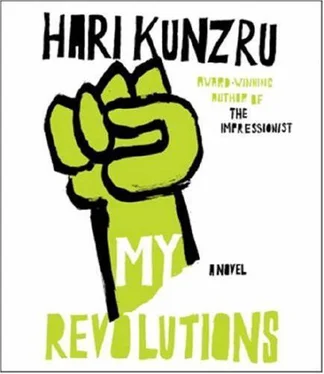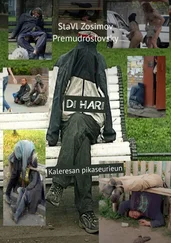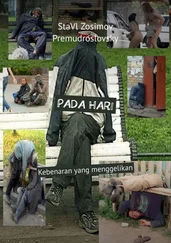People think Fascism doesn’t exist anymore. It’s just a cartoon perversion, a repertoire of sketch show mannerisms: uniform fetishism, short hair, lining your pencils up in a row on your desk. But the Fascists didn’t go away after the Second World War. I don’t just mean skinheads, though even they’ve burrowed underground, talking about multiculturalism, dressing like breakfast-television presenters. There’s always been a part of the British establishment that identifies its own interests with the interests of the state. They’re unsentimental about human life. They have creatures like Miles to do their bidding.
Whoever Miles represented, whichever clique or tendency or faction, I knew that to them, someone like Pat Ellis was just a blow-in, a temporary occupant of a chair. They wouldn’t hesitate to remove her if they thought she was a threat. The only question was whether they took her speech seriously.
Back in i97i, the defenders of British liberty didn’t bother to camouflage themselves. As union unrest grew and middle-class leftists talked about revolution around Hampstead supper tables,
there were rumors of an imminent military coup. In Northern Ireland, young men and boys were being rounded up and placed in camps. Detainees spent hours or days hooded and shackled in stress positions while loudspeakers played white noise into their cells. There were stories of mock execution, prisoners forced to run gauntlets of baton-wielding soldiers.
In a peculiar way, I felt relieved by the news from Ireland. Internment confirmed what I’d always felt was true: inside the democratic velvet glove there was an iron fist. To the imperial dreamers who still ran our country, this was just another colonial police action, rounding up a few natives to keep the rest in line. To us it looked like the beginning of the slide toward the gas chamber.
Sean’s anger knew no bounds. He wanted to act as soon as he heard the news and it was all I could do to stop him from walking out of the door, looking for someone to shoot. He talked about kidnapping, about bombs under cars. He’d always been volatile, but since the debacle of the bank raid, his anger had grown uncontrollable, bitter. He kept talking about how he’d failed to “save” Ferdy, how he should have fired. With Anna away there was no one to counterbalance his self-disgust. He barely listened to the rest of us, even Claire, who could sometimes talk him down. Strangely, for someone who seemed to have trouble concentrating and whose consumption of amphetamines meant that he sometimes went several nights without sleep, he’d taken to reading. He attacked books; after he’d been at one it would look as if it had been through a storm, brutally battered, whole pages underlined in thick pen strokes. To everyone’s annoyance he’d scrawled a quote from Mao on the wall of the room where he was sleeping. We are advocates of the abolition of war. We do not want war; but war can only be abolished through war, and in order to get rid of the gun, it is necessary to take up the gun . It was Sean’s old favorite line; I didn’t like to think of it running round his head when he was wired, late at night.
The problem was that there was very little we could do. We’d almost used up the explosives we’d stolen from the demolition contractor. The rest of our arsenal consisted of three pistols and
an old Sten gun, which was so rusty I doubted it could be fired.
Thankfully, the plan we came up with was simple, if risky, and the only casualty had been dead for three hundred years. Late at night, with Sean behind him, Leo drove a motorbike into Parliament Square. While he pretended to break down, Sean ran into the darkness and planted a bomb on a short fuse beneath the statue of Oliver Cromwell that stood outside the Palace of Westminster. As they accelerated away down the Embankment, the explosion blew the old butcher into little pieces there is no point trying to explain right and wrong to cowards and crooks and part-timers we are sick of justifying ourselves to you our so-called masters or to you liberal dilettante scum who wring your hands and say oh no not this way not now not yet not ever if it was up to you not while british troops are setting up concentration camps in ireland three hundred years after cromwells army raped and pillaged across Two days later the inspector from the bomb squad came on the TV to announce he’d made arrests in connection with the so-called “14 August” group. We saw blurry photographs of people we’d never heard of, who were described as dangerous seditionaries. The policeman was confident their “dangerous antics” had now been brought to an end we are talking to those of you who get it already who are sick of the endless talk which never brings anything into reality we are talking to those of you who know we are all in prison and want to break out go and explain to the people it is time to put an end to the pig state they have looked their whole lives into the lying eyes of judges and social workers and managers and teachers and foremen and doctors and local councillors and still the only ones they fear are the police WE ARE EVERYWHERE we are the man standing next to you on the station platform the woman cleaning your kitchen floor. I tried to speak to Anna. I had
to leave a coded message with a contact in Paris, who called back several days later asking me to wait beside a telephone at a certain time. Since I was staying in a flat with no phone, I’d persuaded a friend to let me use hers. This friend, a girl I knew from Notting Hill, had no idea I was involved in anything illegal. When Anna’s call came through she was in her living room, drinking and playing records with some friends. I sat on her bedroom floor in a tangle of tights and paperbacks and ashtrays and listened to the party on the other side of the door and the crackle on the line and an operator’s voice speaking in a language I thought must be Arabic and then came Anna’s voice, cosmically distant, saying, “Hello.” Our conversation was stilted and telegraphic. I didn’t want to risk discussing Sean. I asked how she was and she said she was fine. There was a long pause, then she asked if Grandma was all right, our code for an emergency. I didn’t dare say that my main reason for calling was to hear her voice. I pretended to have a logistical question, a query about a vehicle we’d left in the long-term parking lot at Heathrow airport. I didn’t ask where she was. I knew it wasn’t France.
Three weeks later. An indeterminate landscape, neither land nor sea; the light a uniform gray dazzle. I drove a brand new VW camper van over endless mudflats, the only sign of my passing a pair of tire tracks, abstract lines in the rearview mirror. It was impossible to tell where the sky began.
I was still on the German side of the border. Up the coast a mile or two was Denmark. The Holstein marshes appeared primeval, almost empty of human life. Up ahead the mudflats folded themselves into low dunes crested with gray-green sea grass. Huge flocks of migratory birds wheeled overhead.
There it was, the place I was looking for — a boathouse with a red roof. I drew up, parked beside it on a patch of broken concrete, listened into the wind. A series of muffled stuttering reports. Silence, then the same sound again. Short bursts of automatic-weapon fire, coming from some distance away. I got out and walked round the boathouse, rattling the big double doors, trying to see in through the smeared glass of the windows. Muffled as it was,
the sound put me on edge. An animal reaction. Fight or flight. As I looked round, someone grabbed me from behind, pinning my arms to my sides. I struggled and found myself face to face with Sean, who seemed to find my violent thrashing very funny. When I shook him off, he raised his hands in pretend surrender.
Читать дальше












